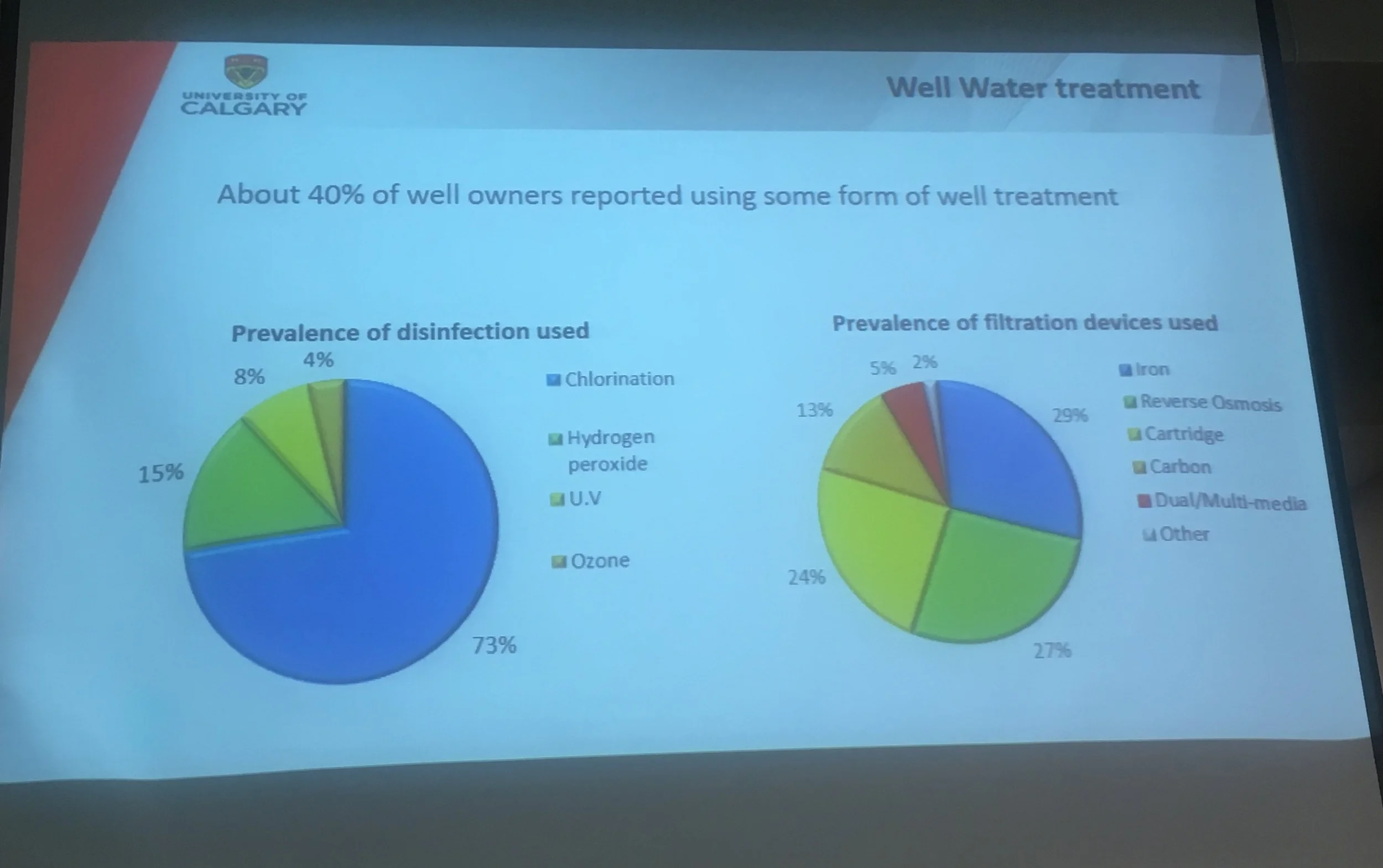Editor’s Note: Today OWC hosted an informative presentation about the perceived safety of drinking water wells amongst well users, followed by an interesting discussion with the audience. Our last blog introduced this topic and now we are pleased to share the highlights of the study in this blog.
Abraham Munene, PhD candidate from the University of Calgary, presented the results of his study that involved surveying about 300 well owners as well as interviewing 20 participants.
Abraham sharing the results today at OWC's office.
Overall, the study found that most well owners feel they are not susceptible to well contamination issues because they have not had any health concerns that they linked to their well water quality. Perceived susceptibility is critical, because it helps indicate how motivated people would be to test and/or treat their well.
The Results:
- About 35% of well owners reported doing a bacterial test in the last 2 years, for things like e.coli or fecal coliforms.
- Farmers were more likely to test their well for bacteria than acreage owners - 78% of farmers reported having done a test at some point, compared to 59% of acreage owners. However, both groups may not be testing or treating regularly.
- About 40% of well users reporting using some form of well treatment, with chlorination being the most prevalent method at 73%.
- With a large livestock industry in Alberta, one question that was asked was regarding agreement with the statement "livestock are a major source of bacterial contamination in water". Results showed that well users who do not own livestock are more likely to agree, than those who own livestock.
This study shows that most well owners have a perceived low susceptibility to well water contamination which may explain their lack of regular testing.
There is a need for continued education and outreach about the importance of well water testing and treatment, because well water quality can change and well owners change too. Programs like Working Well make it easier for well users to undertake annual testing, treatment when necessary and regular maintenence of the well itself.
Abraham continues to analyze the data he collected and will be completing his thesis as well as several peer reviewed journal articles over the next year. OWC will continue to share this information as it becomes available.
Click here to view Abraham’s presentation on Facebook Live.
Abraham’s slideshow is also available here.
Thank you to Abraham for sharing his study results and to everyone who attended the presentation today!







